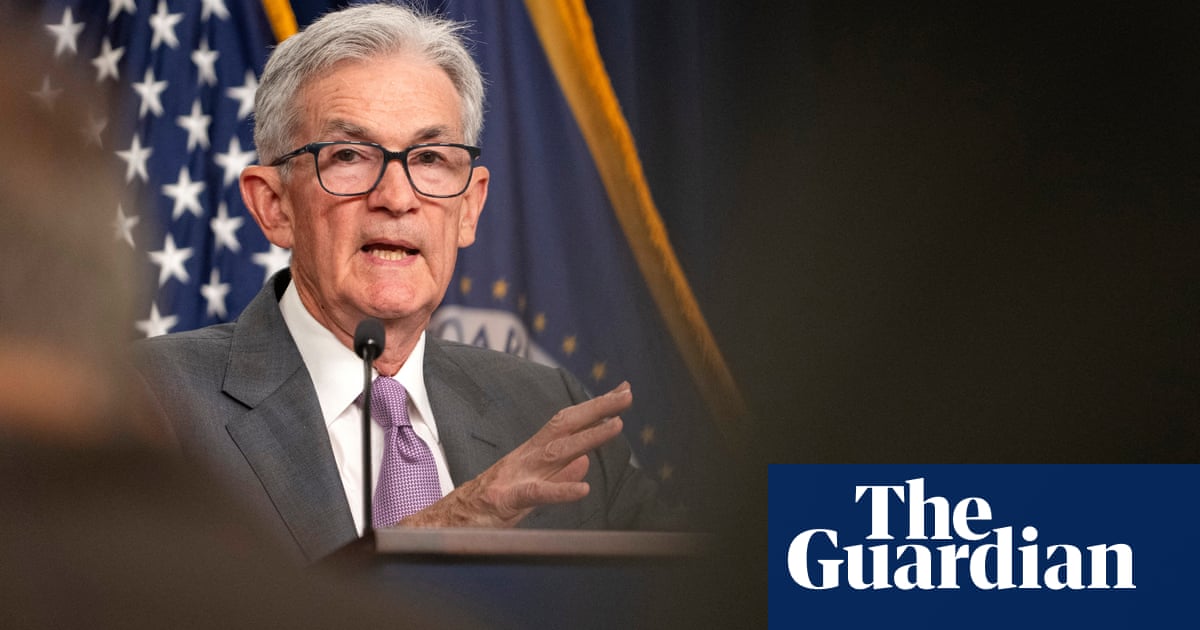
The chairman of the US Federal Reserve declared that “the time has come” to cut interest rates, hailing progress in the battle to bring inflation down from its highest levels in a generation.
With price growth now back to normal, Jerome Powell has signaled that the central bank is ready to start cutting interest rates as early as next month.
He acknowledged that the U.S. labor market — which had quickly recovered from the damage inflicted during the early months of the Covid-19 crisis, adding millions of jobs — now faces greater “downside risks.” Unemployment rates rose last month.
But Powell expressed confidence that there is “good reason” to believe that inflation could decline further without harming the world’s largest economy – if the Fed acts now.
“The time has come to adjust policy,” Powell said at an annual symposium of central bankers in Jackson Hole, Wyoming, on Friday. “The direction is clear, and the timing and pace of rate cuts will depend on incoming data, evolving expectations, and the balance of risks.”
Two years ago, when inflation was rising during the pandemic, Federal Reserve policymakers rushed to cool the US economy by raising interest rates to their highest level in two decades. Now price growth is slowing – it rose at a 2.9% annual rate in July, having faded from a peak of 9.1% in June 2022 – and they are preparing to cut rates, but they have yet to do so.
Officials hope to steer the U.S. into what is called a “soft landing,” in which inflation normalizes and recession is avoided. The Fed’s inflation target is 2%.
The central bank is scheduled to hold its next interest rate-setting meeting in September, where it is widely expected to cut rates for the first time since the emergence of Covid-19 four years ago.
In contrast to Powell’s comments, Bank of England Governor Andrew Bailey warned that the UK economy still faces risks from high inflation, which may require interest rates to remain higher for longer.
“It’s too early to declare victory,” Obama said at the Jackson Hole conference on Friday. “We have to be careful that the mission is not yet complete — and we are not yet back on target on a sustainable basis.”
The Bank of England cut interest rates for the first time since the Covid pandemic earlier this month, lowering borrowing costs by a quarter of a percentage point to 5%. The European Central Bank also cut rates in June, but has since left its key policy rates unchanged.
UK inflation rose above the central bank’s 2% target in July, reaching 2.2%. The central bank warned that UK inflation could peak at around 2.75% before falling back below target within two years.
But Bailey warned of the risk of “permanent” inflationary pressures amid structural changes in the labor market. Sterling rose about 1% against the US dollar in global currency markets to about $1.32 after the central bank governors’ comments.
In recent months, critics of the Federal Reserve have accused the central bank of WASHINGTON – The Federal Reserve appears to have abandoned its plans to derail the U.S. economy, amid unease about its direction. An unexpectedly weak jobs report for July, coming a day after the Fed once again chose to keep interest rates on hold, has triggered a fleeting global sell-off.
In Jackson Hole on Friday, Powell noted that labor market conditions have “deeply slowed,” noting that job creation has slowed, job openings have fallen, and wage gains have slowed. “We do not seek or welcome further slowdowns in labor market conditions,” he added.
After promoting the newsletter
He said the Fed would “do everything we can” to support the labor market while cutting interest rates. “With appropriate relaxation of monetary policy, there is good reason to believe that the economy will return to 2 percent inflation while maintaining a strong labor market,” he added.
Stocks rose as he spoke, with the benchmark S&P 500 up 0.8% and the technology-focused Nasdaq Composite up 1%.
On Wall Street, analysts and economists have spent months trying to predict how fast the Fed will cut interest rates, and by how much.
The Fed “waited too long,” said Ian Shepherdson, chief economist at Pantheon Macroeconomics, calling the shift in the central bank’s tone since its June meeting — when it also left rates on hold — “astonishing.”
“Today’s speech is welcome, but it would have been much better for the economy if the Fed had softened some of the disappointing inflation data and eased monetary policy in June,” Shepherdson said. “March could have been better, but policymakers were so determined not to fall into another unexpected inflation trap that they waited until the risk was very small.”
During his speech on Friday, Powell harked back to 2021, when he — and many economists — claimed that inflation was a “temporary” result of supply and demand swings caused by the pandemic, restrictions and lockdowns.
“The good ship Transit was crowded, with most of the traditional analysts and central bankers from advanced economies on board,” he recalls. Central banks, including the Fed, had faced criticism for their early analysis of rising inflation.

“Web maven. Infuriatingly humble beer geek. Bacon fanatic. Typical creator. Music expert.”





More Stories
Dow Jones Futures: Microsoft, MetaEngs Outperform; Robinhood Dives, Cryptocurrency Plays Slip
Strategist explains why investors should buy Mag 7 ‘now’
Everyone gave Reddit an upvote